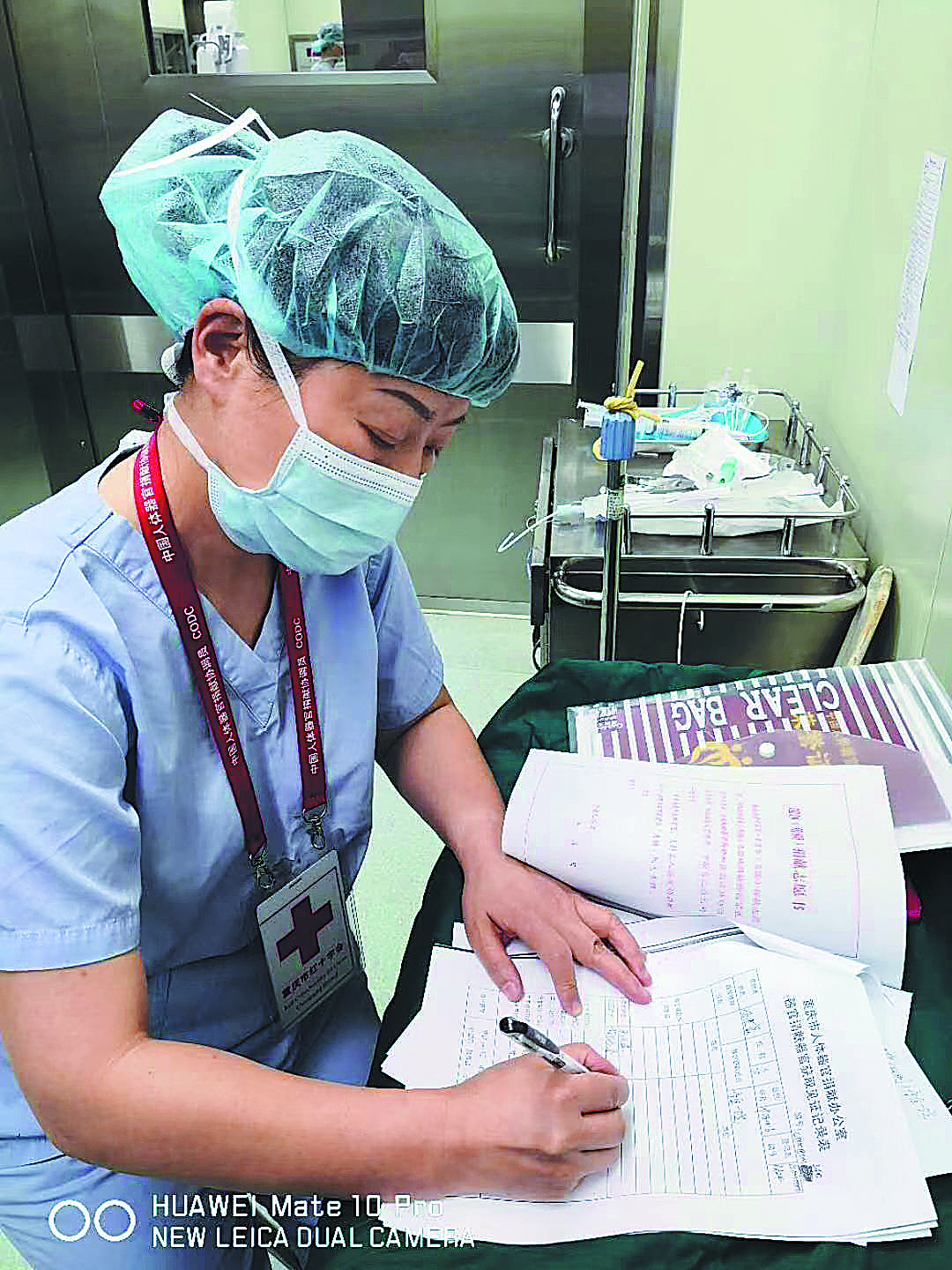Lifesaving donations of organs gained by retiree


Although she retired as a nurse from a hospital in Chongqing 10 years ago, Mi Zhihui is still on call 24 hours a day.
She now helps local hospitals assess potential organ donors-conducting background investigations on the candidates, explaining policies to their family members, standing in as a witness when relatives sign their names on donation documents and during surgeries as the organs are collected, and participating in ceremonies and funerals to bid farewell to the deceased donors.
Mi is one of Chongqing's first organ donation coordinators.
As she was preparing to retire a decade ago, the Chongqing branch of the Red Cross Society began recruiting coordinators for a pilot program on voluntary organ donations that it was setting up.
Mi, with her experience as a medical worker and with her outstanding communication skills, was selected.
Having worked as a nurse for more than three decades, she had seen many patients struggle with severe diseases and was aware of the importance of organ donation. Realizing that being a coordinator would help save lives, she eagerly took up her new role.
But she had no idea how difficult the job would be.
Her first case involved a 19-year-old man who had been declared brain-dead after a severe accident. Mi talked to his parents several times over the course of three days, trying to persuade them to allow the doctors to harvest his organs, but the grieving couple would not allow it.
"In my first few years as a coordinator, success was a rare thing," she said. "Coordinating an organ donation is not a simple task, as we are always faced with family members who are filled with sadness, desperation and helplessness."
Too often, coordinators like her were not well received by family members, who knew little about organ donation. Some saw it as some kind of strange trade, while others were in denial about the impending deaths of their loved ones.
Mi would receive angry looks or even curses when she approached and attempted to talk to them. She began to question whether her job truly had meaning.
"When I was a nurse, I helped save lives. But now, it seemed that I had become someone who takes people's lives by persuading their family members to donate their precious body parts to save the lives of people they don't know," Mi said.
This feeling nagged her until she began to gradually succeed in coordinating donations.
The first successful one she handled was in 2012, when the parents of a female college student in Chongqing donated the organs of their daughter, who was declared brain-dead after an acute and severe disease. It was the first organ donation in the city since the pilot program began.
In 2015, thanks to Mi's efforts, the liver and two kidneys of a 12-year-old boy who was declared brain-dead after an accident were donated, saving three lives. His corneas also helped two visually impaired people recover their sight.
Mi also coordinated a donation in 2018 in which five ailing patients recovered after the parents of a young Australian man donated his organs.
The man, who worked in Chongqing, was a lover of music, so to pay tribute to him, the recovered recipients formed a temporary band and dedicated their performances to his memory.
The deed brought some comfort to the young man's parents in Australia.
"These successful cases made me believe that organ donations do indeed help spawn new life out of death," Mi said.
Emboldened by these cases and keeping patients who are waiting for organs in her thoughts, she said she has gained the courage to keep trying to arrange donations, though she is still rejected repeatedly.
Over the past 10 years, she has participated in the coordination of nearly 500 donations. The oldest donor was 72 years old, while the youngest had only been alive for 33 hours. She's grateful to see that more people are understanding and supportive of her work.
Data from the Chongqing branch of the Red Cross Society showed that the number of Chongqing residents signing up to donate organs has been rising since 2012 and reached 85,000 in March.
More than 800 donations have been completed in the city since 2012, saving the lives of 2,200 patients with organ failure.
Nationally, more than 4.75 million people have signed up, and more than 40,000 donations were completed as of the end of May, statistics from the China Organ Donation Administrative Center showed.
- Woman honored for guarding the border for 53 years
- Former provincial anti-graft official prosecuted for suspected bribery
- Flowers presented to martyrs, honoring their eternal spirit
- Journey to Joy: Life through a photographer's lens
- China cracks down on foreign fishing trawlers breaking moratorium
- On board G8388: Jinshanzui — Shanghai's last fishing village





































